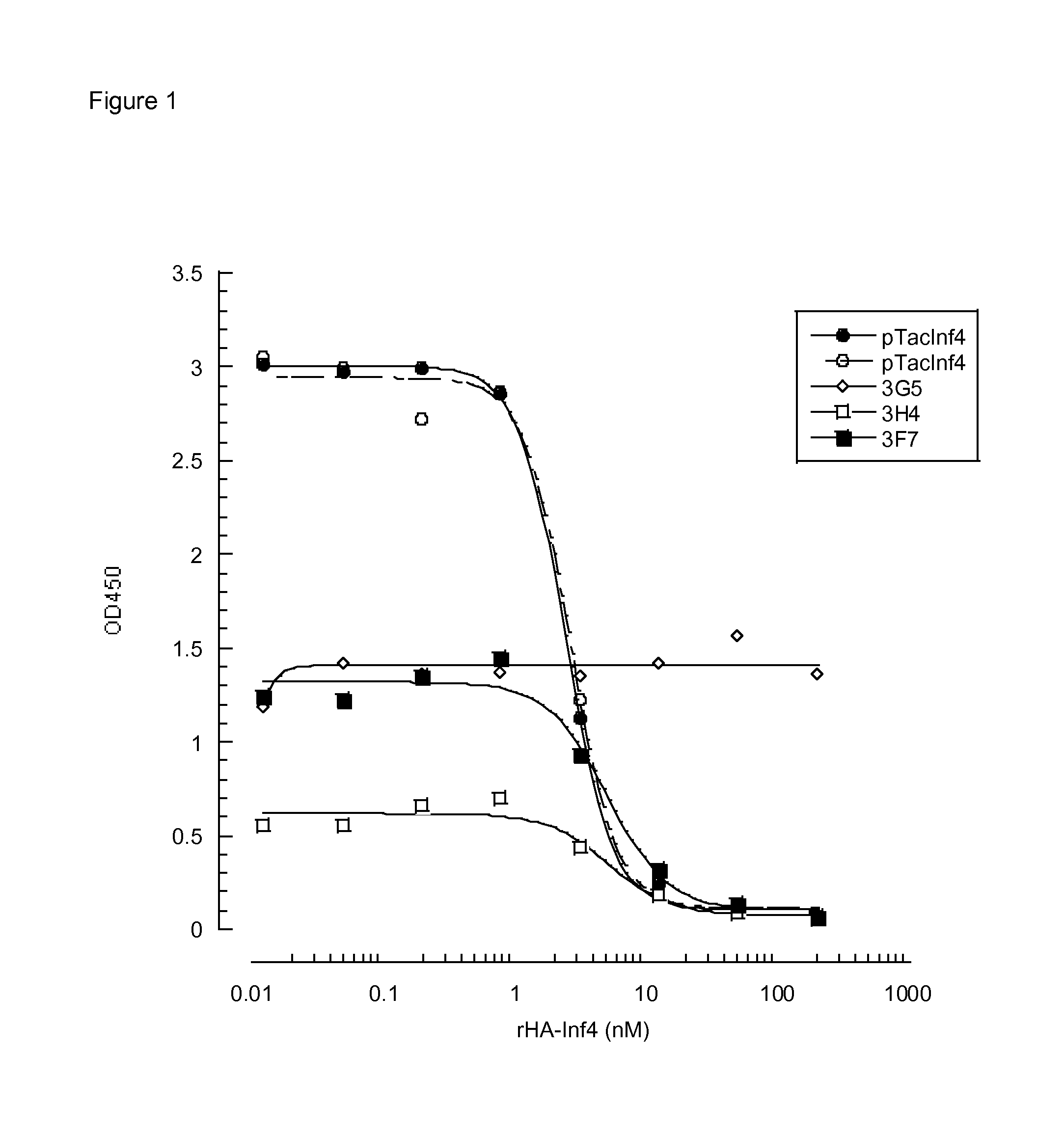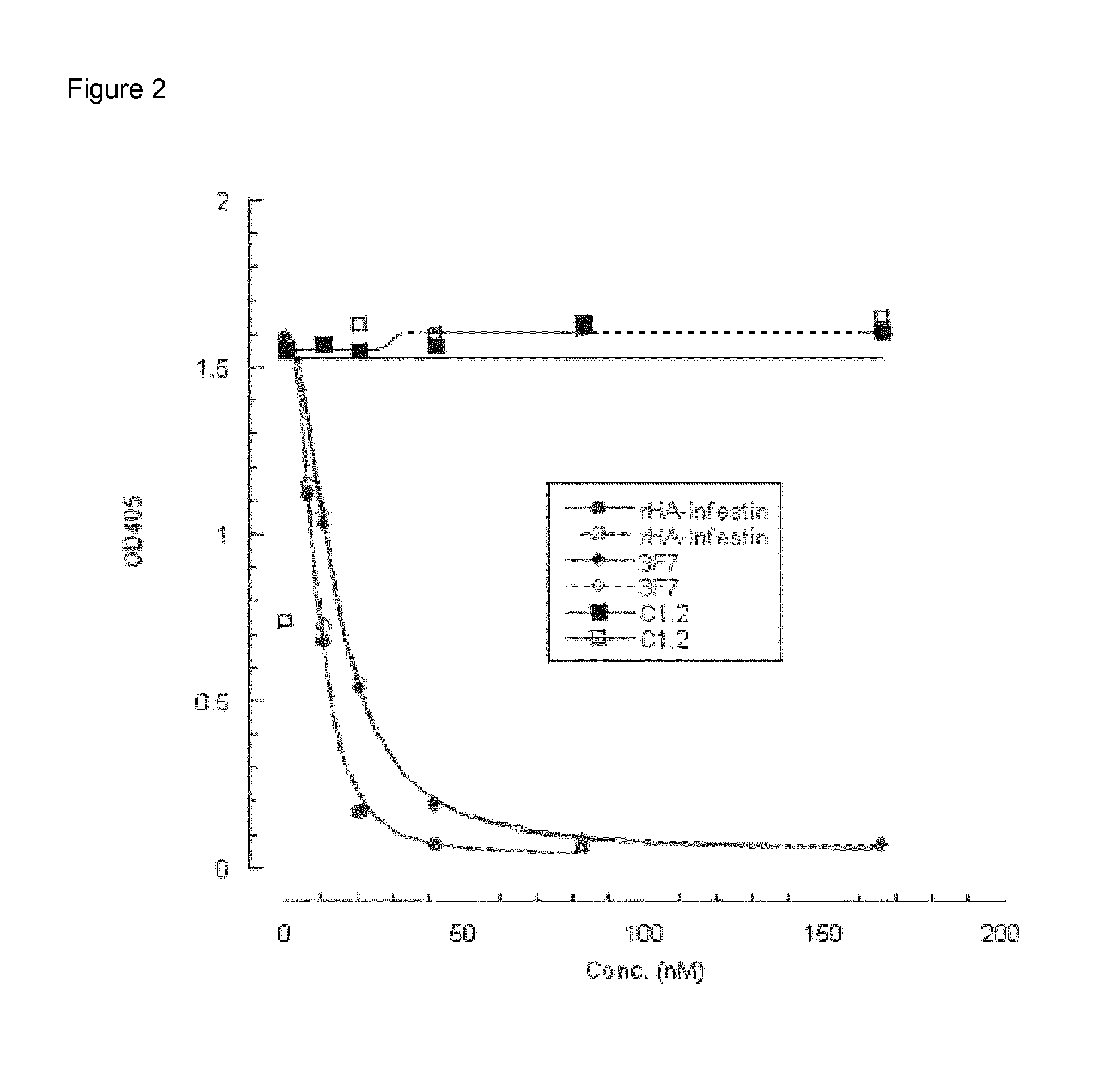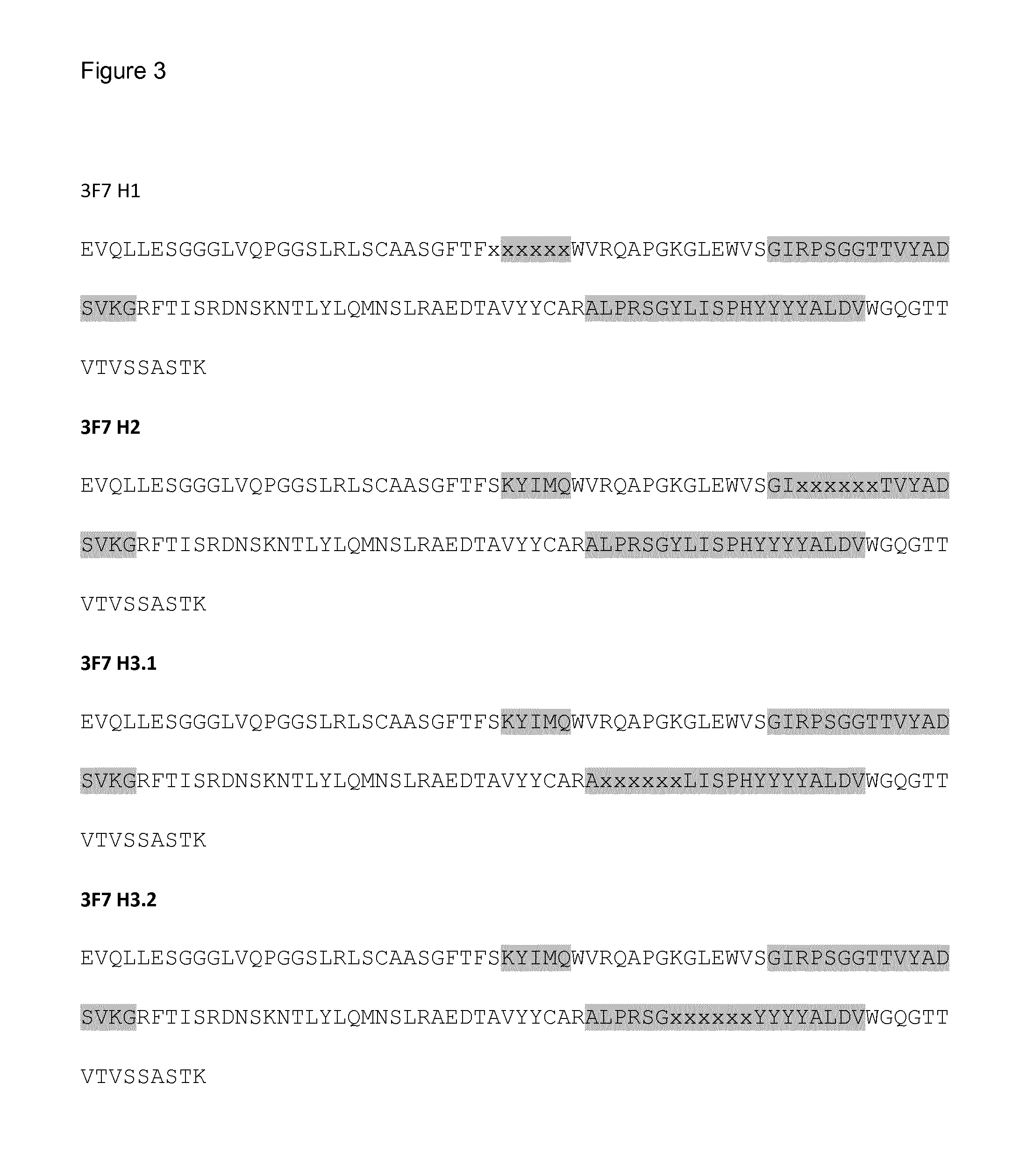Inhibitory anti-factor XII/XIIA monoclonal antibodies and their uses
a technology of anti-factor xii and monoclonal antibodies, which is applied in the field of inhibiting the anti-factor xii/fxiia antibodies, can solve the problems of affecting the function of the immune system, affecting the ability of the immune system to work normally, so as to inhibit the amidolytic activity of human factor xiia and the effect of binding affinity
- Summary
- Abstract
- Description
- Claims
- Application Information
AI Technical Summary
Benefits of technology
Problems solved by technology
Method used
Image
Examples
example 1
Phage Display Selection
1) Phage Panning Method
[0175]A human Fab-based phage display library (Dyax Corp. Cambridge, Mass.) was used to screen against biotinylated FXIIa beta. Prior to initiating each round of selection, the antibody library was preincubated with 500 μL of 4% milk in PBS for 1 hr at room temperature (RT). 100 μL aliquots of M280 Streptavidin beads were coated with 3 μg of biotinylated FXIIa beta overnight at 4° C., followed by washing 3 times in PBS / 0.05% Tween 20 (PBST) and once in PBS using a KingFisher magnetic particle processor (Thermo Fisher Scientific). Beads were collected using a Dynal magnetic particle separator (MPS) (Invitrogen Corp.), resuspended in 1 mL of 2% milk in PBS, and tumbled at RT for 1 hr. Blocked beads were collected using the MPS and Round 1 was performed by incubating 5.5×1012 colony forming units (cfu) of phage with immobilised FXIIa beta in total volume of 1 mL at RT for 20 minutes. Following the incubation the beads were collected and was...
example 2
Affinity Maturation of the 3F7 Antibody
[0184]The aim of the affinity maturation of 3F7 was to identify and characterise 3F7 mAb variants able to bind to human FXIIa with higher affinity than the parental antibody. Higher affinity variants have the potential to show improved inhibition of FXIIa amidolytic activity. The method for the generation of Fab-phage affinity maturation libraries (see Library construction below) is dependent on degenerate oligonucleotides annealing to a ssDNA template which is then extended to make a double stranded form for transformation. The size of the library is dependent upon transformation efficiency, and degeneracy of the primers used. The primers used (see below) covered a 19 amino acids combination (without cysteine). Libraries targeting 6 amino acid residues at a time were designed. The theoretical diversity of using trimer oligonucleotides for 6 residues is 196=4.7×107.
1) Design of Affinity Maturation Libraries
example 3
IgG Production and Purification of Phage-Derived Antibodies of the Invention
1) Mammalian Expression Vector Construction
[0194]The mammalian expression vectors were constructed using standard molecular biology techniques by cloning the entire light chain (variable and constant domains) and the variable domain of the heavy chain from the selected phage-derived Fab constructs into the pRhG4 vector as previously described (Jostock et al 2004. Rapid generation of functional human IgG antibodies derived from Fab-on-phage display libraries. J Immunol Methods, 289; 65-80).
2) Cell Culture
[0195]Serum-free suspension adapted 293-T cells were obtained from Genechoice Inc. Cells were cultured in FreeStyle™ Expression Medium (Invitrogen) supplemented with penicillin / streptomycin / fungizone reagent (Invitrogen). Prior to transfection the cells were maintained at 37° C. in humidified incubators with an atmosphere of 8% CO2.
[0196]The transient transfection of the mammalian exp...
PUM
| Property | Measurement | Unit |
|---|---|---|
| molecular weight | aaaaa | aaaaa |
| pH | aaaaa | aaaaa |
| pH | aaaaa | aaaaa |
Abstract
Description
Claims
Application Information
 Login to View More
Login to View More - R&D
- Intellectual Property
- Life Sciences
- Materials
- Tech Scout
- Unparalleled Data Quality
- Higher Quality Content
- 60% Fewer Hallucinations
Browse by: Latest US Patents, China's latest patents, Technical Efficacy Thesaurus, Application Domain, Technology Topic, Popular Technical Reports.
© 2025 PatSnap. All rights reserved.Legal|Privacy policy|Modern Slavery Act Transparency Statement|Sitemap|About US| Contact US: help@patsnap.com



